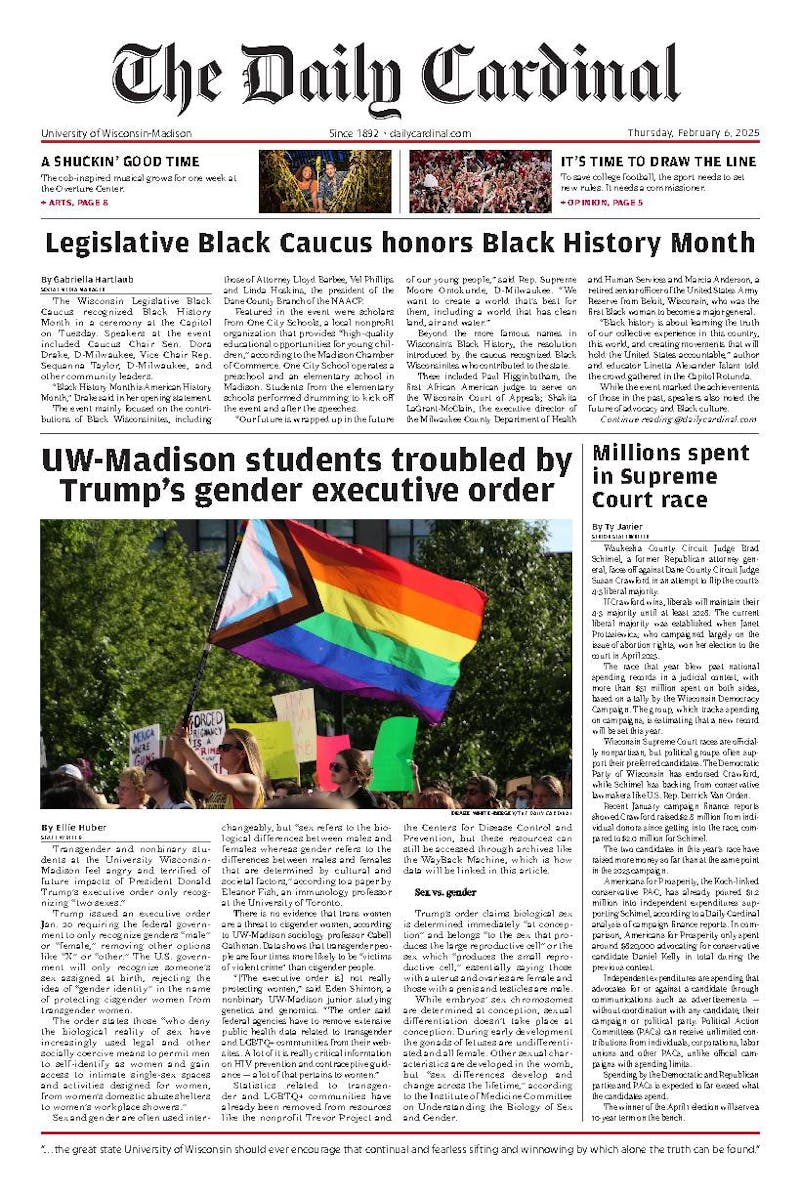The judicial branch of our government is supposed to be the impartial and logical branch of government. But in recent years, it has simply become pawns in the sad, dirty game of politics.
Lawyers cherry pick which judges to try their cases based on who appointed them to the bench. This past month has highlighted the seeming failure of judges to make consistent rulings at all levels of government.
In a major decision, Judge Roger Vinson of the Northern District of Florida ruled to completely overturn ObamaCare, citing the individual mandate as unconstitutional. However, three other judges either called the law constitutional or simply removed the mandate from the law. Clearly these judges used different sets of precedents, and probably different prejudices, to hand down their rulings.
Without missing a beat, the White House singled out Vinson's decision as ""judicial activism,"" the same term also used by Republicans to describe the previous rulings that upheld ObamaCare.
So which judge made the right ruling? According to Democrat-appointed judges, precedent says they remove just the mandate, if it is in fact unconstitutional. However, Vinson, a Republican appointee, found precedent for overturning the entire law when a severability clause for the provision was purposefully omitted, which the mandate's clause was.
The question that needs to be asked: Is it the precedent the judge uses, or is the party he or she affiliates with that determines how a judge makes final rulings? With so many different legal opinions available, there is not only one correct answer.
But my frustration extends beyond the high-profile federal cases. For us Illinois folk, the Chicago mayoral elections are coming up soon, and it has been receiving plenty of attention. The biggest topic has been the lawsuits disputing
Rahm Emanuel's residency and eligibility to run for mayor.
Emanuel's eligibility was denied until the Supreme Court, a group of elected judges, finally declared him as eligible for the ballot. According to the law, a candidate must be able to vote in and reside in the municipality for at least one year before Feb. 22 elections.
The case should be simple enough, right? Emanuel has clearly not lived in Chicago for a year, therefore he does not meet the eligibility requirement for being a candidate. But the final decision from the Illinois' Supreme Court said that residing does not only mean to live in a location, but also to intend to live in an area. If that is not judicial activism, then I do not know what is.
Even though the case is settled now, the whole debacle led to more wasted time, wasted money on ballots without Emanuel's name and has made me even less confident of my home state's system of government.
But maybe the blame for all my confusion does not belong solely on the judges. Maybe the problem is that some laws are out-dated or just plain confusing. Maybe the judges are trying to appease their electorate for the next election. Most likely, it is a little bit of both that are affecting the judges.
I think it is clear that judicial election and appointment procedures need to change. Though judges are generally efficient, they often falter on controversial and high-profile cases, such as ObamaCare, Emanuel's eligibility and even human embryonic stem-cell research earlier this year.
The best way to do this is using a non-partisan, expert committee to select judges based on merit. By no means will this eliminate all partisan judges, but it is more reasonable than having voters pick judges based mainly on the letter next to their name on the ballot.
Furthermore, the way legislation is written needs to change to eliminate confusion and uncertainty. People, namely branding icon Alan Siegel, have been proposing solutions to simplifying legal language. Siegel did so successfully for many businesses, best illustrated in his 2010 Technology Entertainment Design Conference talk. His ideas should be adopted throughout our nation's congresses to begin clarifying the laws of the land.
These reforms will definitely not make everything easier right off the bat. Committees will have to spend time picking a valid set of judges, and legislators will have to spend an equally long amount of time simplifying their ideas. But hopefully with some reform, rulings in the future will become more consistent and less partisan. And heck, maybe we will have judges and lawyers who can finally agree on the definition of other complex phrases like ""reside.""
Matt Beaty is a sophomore majoring in math and computer sciences. We welcome all feedback. Please send responses to opinion@dailycardinal.com.





